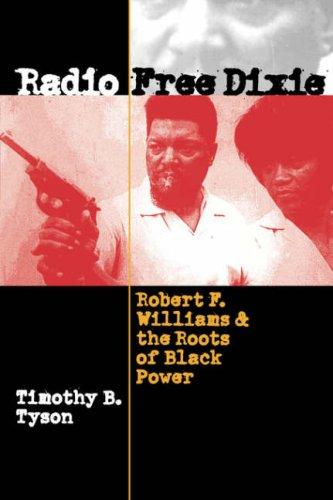Paperback, 416 pages
English language
Published Jan. 3, 2001 by The University of North Carolina Press.

Paperback, 416 pages
English language
Published Jan. 3, 2001 by The University of North Carolina Press.
Robert F. Williams was suspended and made a pariah by the National Association for the Advancement of Colored People, the organization that had been at the forefront of the Civil Rights movement, because he dared speak clear pixel of the day-to-day, street-level struggle faced by Southern blacks, and encourage that violence upon African American homes and families be met in kind. Afraid of offending their white, northern-liberal supporters, the NAACP cut Williams loose. Disillusioned with the organization's often maddening adherence to pacifism, even in the face of gross brutality and state indifference to justice, Williams took a more militant stance, laying significant groundwork for the Black Power movement. Timothy B. Tyson's Radio Free Dixie makes great strides in placing the emergence of Black Power in context by focusing on the political evolution of a man at its center. Tyson's Williams emerges as a man who grew up surrounded by the …
Robert F. Williams was suspended and made a pariah by the National Association for the Advancement of Colored People, the organization that had been at the forefront of the Civil Rights movement, because he dared speak clear pixel of the day-to-day, street-level struggle faced by Southern blacks, and encourage that violence upon African American homes and families be met in kind. Afraid of offending their white, northern-liberal supporters, the NAACP cut Williams loose. Disillusioned with the organization's often maddening adherence to pacifism, even in the face of gross brutality and state indifference to justice, Williams took a more militant stance, laying significant groundwork for the Black Power movement. Timothy B. Tyson's Radio Free Dixie makes great strides in placing the emergence of Black Power in context by focusing on the political evolution of a man at its center. Tyson's Williams emerges as a man who grew up surrounded by the horrors and indignities of Jim Crow but was only radicalized after exhausting every ounce of a considerable faith in the American constitutional system.